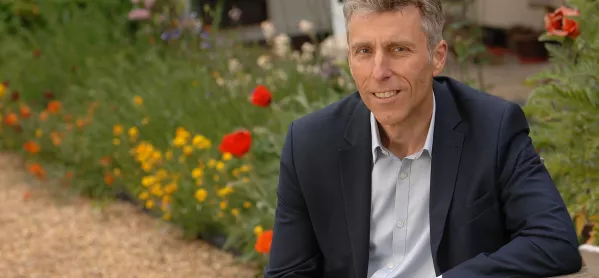I like being surprised by things and I was not let down at the opening ceremony of the 40th annual Association of Colleges’ Sport National Championships over the weekend. Perhaps I shouldn’t have been, but I was slightly taken aback, by the positive attitude of young students to a little bit of history. More about that in a minute.
First the background; the National Championships is a great event which really needs to be seen to be fully appreciated - the scale and organisation of it are impressive. This year we had over 1,730 students from 121 colleges competing across 13 sports, representing all the English regions plus Wales and Northern Ireland. The event shows just how vibrant college sport is, and how successful AoC Sport has been in facilitating the competition and student involvement in sport.
The quality of sport played was incredibly strong and great to watch, with students showing true commitment, fierce competition and world-class standards. College sport has helped to develop some of Team GB’s most successful modern Olympians, including the swimmer Adam Peaty and the boxer Nicola Adams. An impressive statistic from the recent Commonwealth Games in Australia: Loughborough College alumni would have placed sixth in the medal table if they counted as a country, with 15 golds, four silver and 11 bronze medals between them. An impressive haul.
Self-confidence and self-awareness
All well and good, but sport is not only about winning. We believe that taking part in sport and physical activity provides all sorts of benefits to young people. We know that there are simple health benefits - both physically and in terms of mental wellbeing. Sport and physical activity are important outlets for stress, not least around exam time. Our work with colleges also shows that sport can help young people build the self-confidence and self-awareness which will help them be more resilient to all the challenges life is likely to throw at them.
Just like the social action opportunities colleges offer to students, sport also gives young people a chance to learn team-working skills, respect for others, a sense of belonging and a sense of achievement - all those attributes which employers value the most in new recruits. There is increasing evidence that the extracurricular activities in schools and colleges are important factors in students being successful both in their studies and in subsequent education and work. We forget that at our peril - we talk a lot about cuts to school and college funding and how it might impact academic achievements. Much harder to measure, though, is the loss of the social action, sporting and cultural opportunities which can do so much to shape and develop our young people.
So now to my surprise. We were delighted that Hugh Johnson joined us for the opening ceremony. Hugh was principal at Airedale and Wharfedale College in Leeds in the 1970s when he decided that a national championship for colleges students was a good idea. In 1978 the first championships went ahead with, he says, around 600 students. With him now being aged 92, it was lovely to see his pleasure as the students entered the opening ceremony, politely and excitedly walking in their regional teams.
What touched me and took me slightly aback was when Mark White, chair of AoC Sport, told the 1,730 students that Hugh was in the audience. The immediate reaction was a heartfelt round of applause, and cheers, in recognition and respect for Hugh and what he did to help to make the championships a reality more than 20 years before these students were even born.
A great testament to the students and a reflection of their positive attitudes. I wonder how much participating in sport has helped to shape that respect and those attitudes.
David Hughes is chief executive of the Association of Colleges




